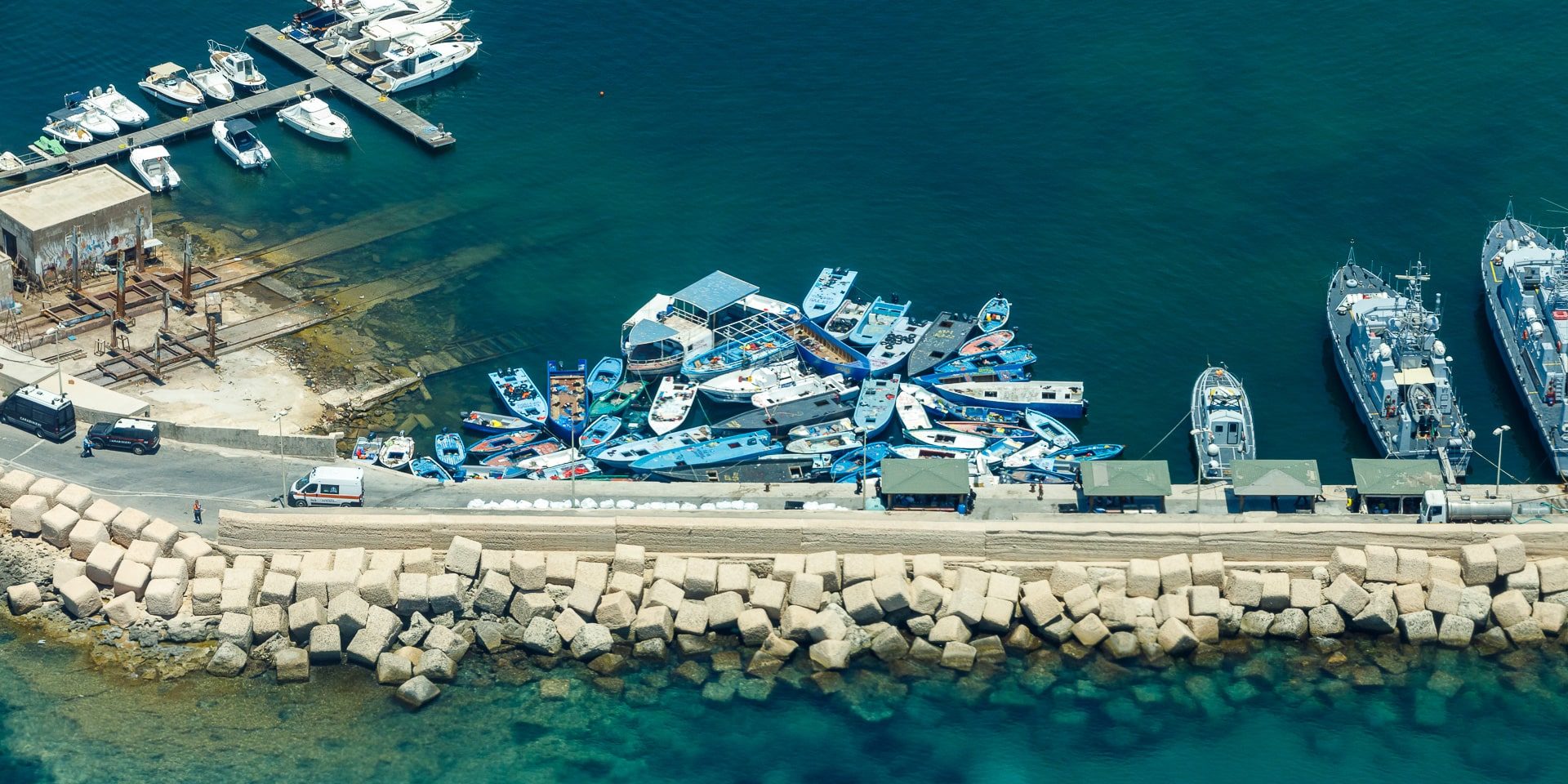For some weeks now, the Italian Mediterranean island of Lampedusa has once again been in the public eye. Located southwest of Sicily, it is the closest European mainland to both Libya and Tunisia. That’s why a particularly large number of people fleeing arrive here and make their way to Europe.
During the summer months, when the sea is usually calmer, a particularly large number of people dare to make the dangerous crossing. The small island, which is home to just 5,000 inhabitants, has been the sad scene of Europe’s failure in migration policy for years.
There is only one initial reception centre on the island. This is designed for just 350 people. However, in July of this year alone, nearly 5,000 people have reached the island – almost half of them in the last week. It is obvious that this calculation cannot work and leads to people having to endure inadequate care and undignified conditions.
Well over a thousand people have been living in the camp in recent weeks – some without access to running water. The Italian government reacted cautiously by evacuating people from the island several times, but even those people had to wait for hours in the blazing sun and without access to sanitary facilities for the crossing.
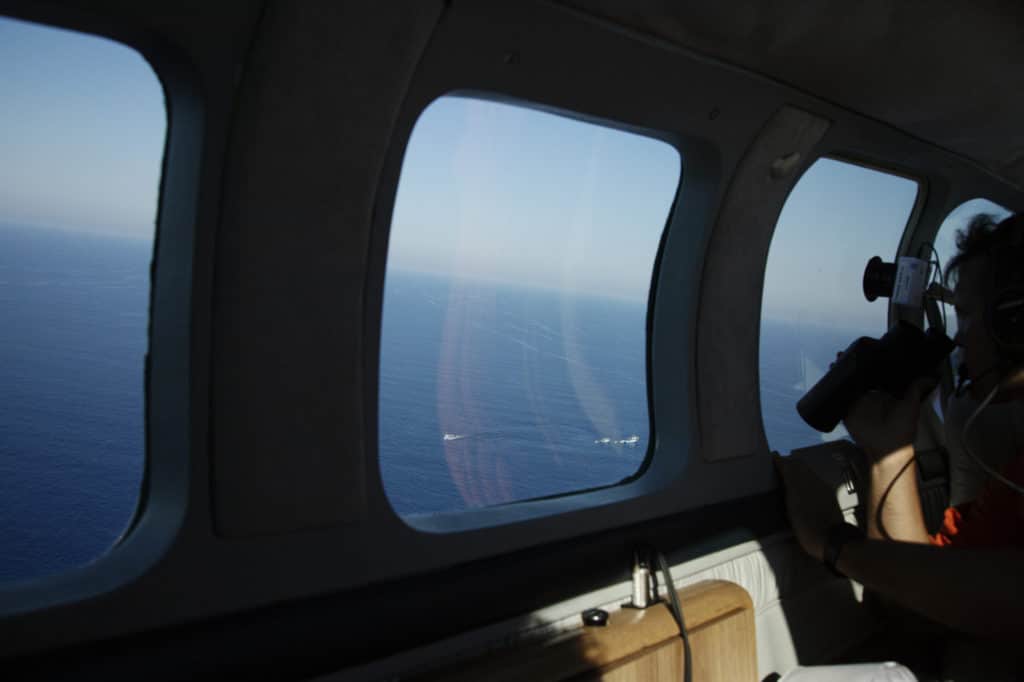
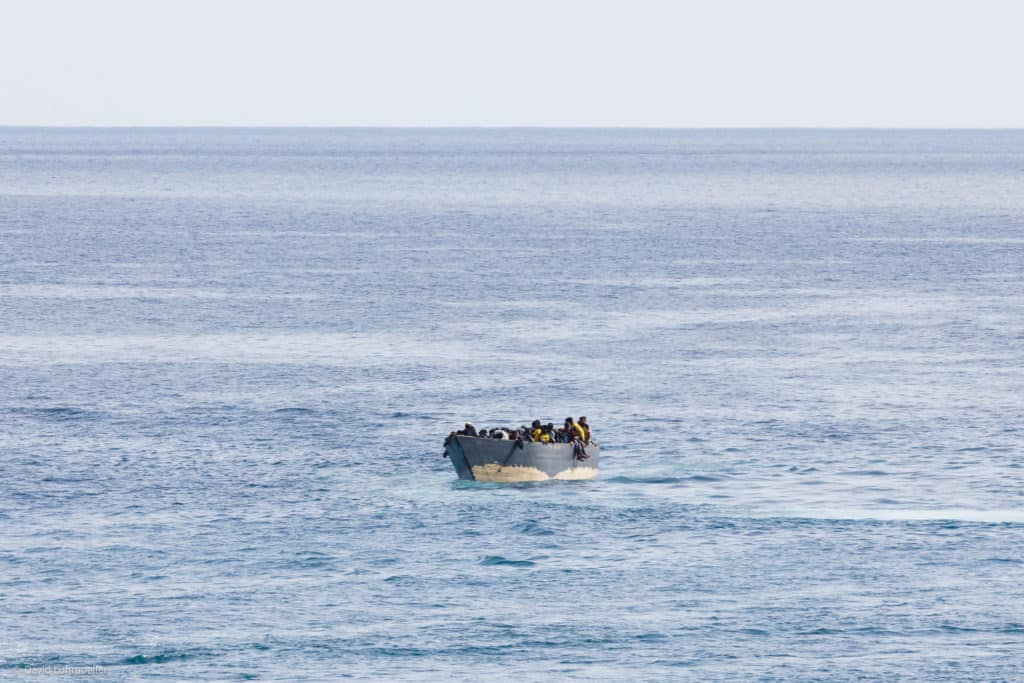
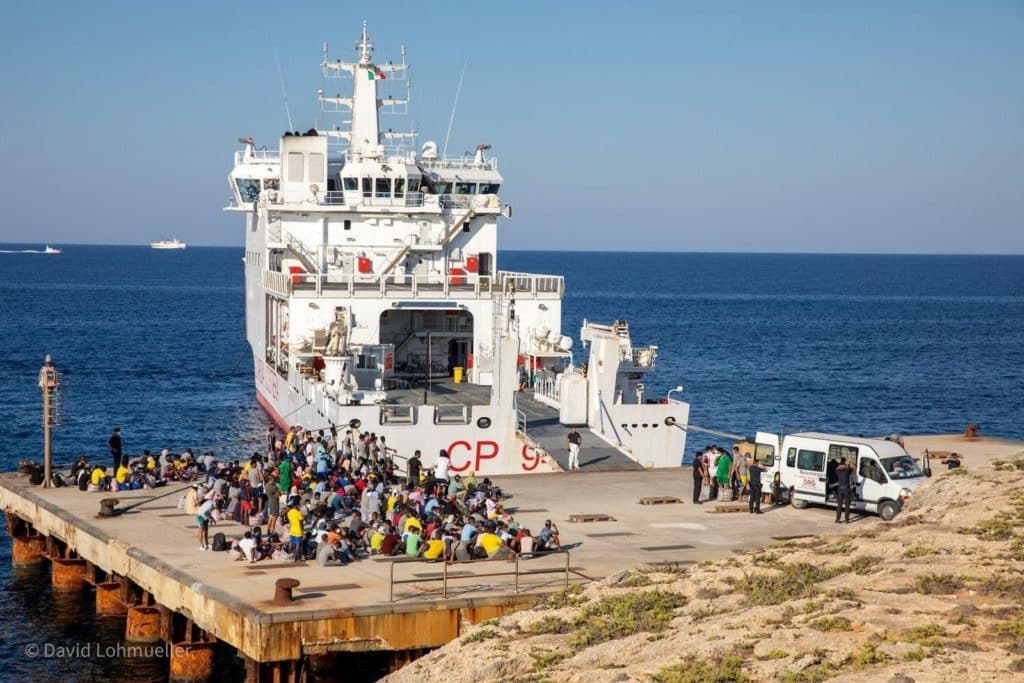
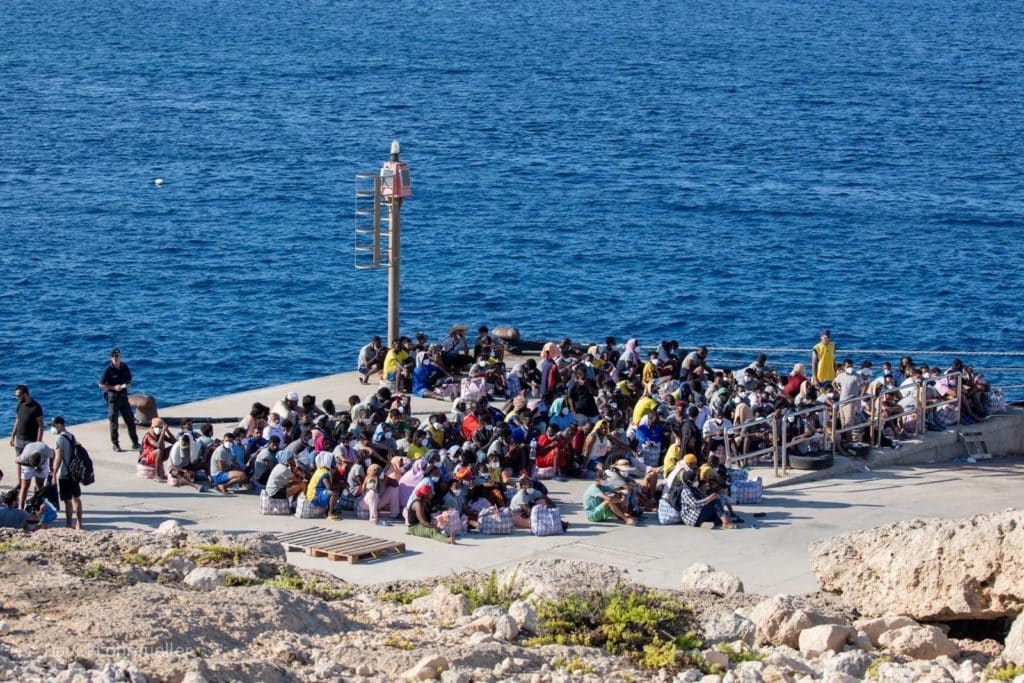
Since 2017, we have been observing the Mediterranean Sea from the air with our reconnaissance aircraft. Again and again, we have to see that people on the move are completely disenfranchised. Not only is there no state-organised sea rescue for which it would be easy to prevent thousands of deaths.
There are also attempts to push people back, by all means, to make it even more difficult for them to flee and to turn their suffering into a pawn in political agendas. The standoffs currently taking place, where civilian sea rescue ships with hundreds of people on board have to wait for days off the coast of Italy for the allocation of a safe harbour, is just one of many examples of this
Although our plane is currently not allowed to enter the international waters off the coast of Libya due to a blockade by the Libyan authorities – we reported on this in the last newsletter – we have also witnessed and documented numerous human rights violations in the Maltese search and rescue zone in recent weeks. This is because the so-called Libyan coast guard now quite naturally drives deep into Maltese rescue territory to tow people back to Libya – usually even directly coordinated by the Maltese authorities or the European border protection agency Frontex! On one day alone, our crew could observe how a single vessel of the so-called Libyan Coast Guard intercepted 4 wooden boats.
Due to the government crisis in Rome, the political mood in Italy threatens to tip further. After Prime Minister Mario Draghi submitted his resignation for the second time in a week, new elections are now due in September. Italy’s ultra-right – led by Giorgia Meloni and Matteo Salvini – currently stand a good chance of emerging victorious. And the election campaign is already in full swing: the topic of migration is once again being misused to create a mood against refugees and their supporters. This brings back memories of 2019, of the Salvini decree and the 17-day standoff of the Sea-Watch 3 under Captain Carola Rackete. Non-stop attacks against people on the move and NGOs that carry out sea rescue in the Mediterranean are once again on the agenda, as they were then. Should the ultra-right make it into government, we fear far-reaching negative effects on the rights of refugees as well as on civilian sea rescue.
One thing is certain, however: we will not go anywhere and continue to oppose this deeply racist and inhuman policy. Our answer remains: Humanity and solidarity. There are hard times ahead, that’s why: Stay vigilant, draw attention to our work – join us in campaigning for safe and legal escape routes!





